digital rights
Filter by...
-

Delete first, think later
The proposed Digital Services Act wants to push online platforms to quickly remove illegal content. But it uses a sledgehammer on a most intricate challenge: moderating online speech. The result would crush freedom of expression instead of enabling it. This is the second blog post in a new series dedicated to the EU’s proposed Digital Services Act and Digital Markets Act.
Read more
-

Why Facebook’s proposed hate speech policy on Zionism would only add fuel to the fire
Pressured to combat surging hate speech and anti-Semitism on its platform, Facebook is looking into how it should moderate the use of the word “Zionist,” and whether to add the term as a protected category under its hate speech policy. EDRi's member Access Now doesn’t think that is a good idea, particularly given Facebook’s inability to strictly adhere to human rights principles in its content moderation practices.
Read more
-
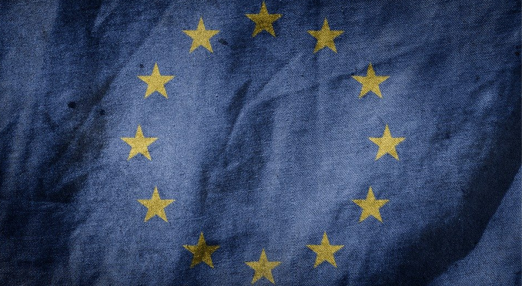
At a glance: Does the EU Digital Services Act protect freedom of expression?
The Digital Services Act is in many ways an ambitious piece of legislation that seeks to make ‘Big Tech’ accountable to public authorities through new significant transparency and due diligence obligations. It also contains many provisions that could help protect users’ fundamental rights. Whether it will be successful at protecting freedom of expression from undue restrictions or reining in the power of Big Tech rather than cementing it, is, however, questionable. EDRi's member ARTICLE 19 share its first thoughts on why.
Read more
-

“Anytime and anywhere”: Vaccination, immunity certificates, and the permanent pandemic
The deployment of vaccines, and in particular any “immunity passport” or certificate linked to the vaccination, must respect human rights. EDRi's member Privacy International (PI) reveals some of the broader human rights, ethical and societal implications of vaccination "passports".
Read more
-

Italy proposes age verification and digital identities for accessing social media
EDRi member Hermes Center sheds light on the current case against TikTok in Italy, where three solutions are circulating on how to make sure that children will not access certain online contents unless supervised by their guardians.
Read more
-
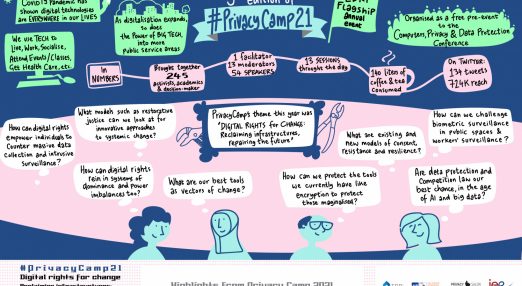
#PrivacyCamp21: Event Summary
The theme of the 9th edition of Privacy Camp was "Digital rights for change: Reclaiming infrastructures, repairing the future" and included thirteen sessions on a variety of topics. The event was attended by 250 people. If you missed the event or want a reminder of what happened in the session, find the session summaries below.
Read more
-

Polish law on “protecting the freedoms of social media users” will do exactly the opposite
EDRi member Panoptykon Foundation carefully analyses the Polish law on “the protection of freedoms of social media users” which turns out to introduce data retention, a new, questionable definition of “unlawful content”, and an oversight body that is likely to be politically compromised.
Read more
-
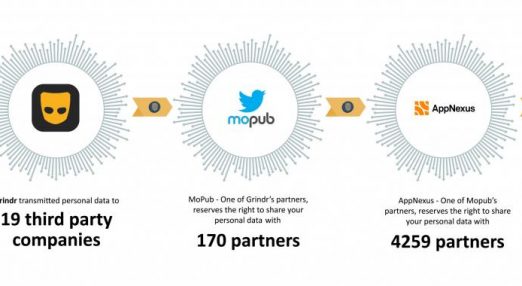
The Dating App “Grindr” to be fined almost € 10 Mio
On 26 January, the Norwegian Data Protection Authority upheld the complaints, confirming that Grindr did not recive valid consent from users in an advance notification. The Authority imposes a fine of 100 Mio NOK (€ 9.63 Mio or $ 11.69 Mio) on Grindr. An enormous fine, as Grindr only reported a profit of $ 31 Mio in 2019 - a third of which is now gone. EDRi member noyb assisted with writing the legal analysis and formal complaints.
Read more
-
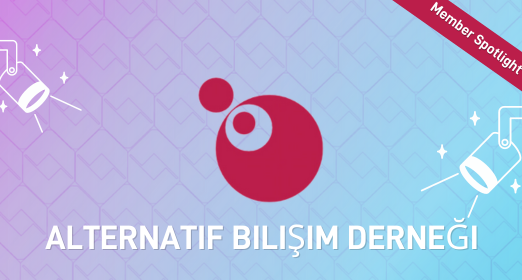
Member in the Spotlight: Alternatif Bilişim Derneği
The Alternative Informatics Association (Turkish: Alternatif Bilişim Derneği, Alternatif Bilişim acronym) is a Turkey based civil society organisation focusing on the issues of media literacy, internet censorship and mass surveillance since 31 December 2010.
Read more
-

Looking back at digital rights in the era of a surveillance pandemic
2020 started as a year to build momentum to tackle various digital rights issues, including mass surveillance and freedom of expression online. Needless to say, the global pandemic disrupted not only these efforts but also our health, personal relations, basic survival needs and ways to organise around human rights. After 9 months of living and working in a pandemic, we look back at what we achieved and the ways forward from here.
Read more
-

Envisioning a Decolonised Digital Rights Field – and Charting Next Steps
This week, a group of 30 participants, working on issues of racial, social and economic justice, digital rights, and in philanthropy, came together to not only collectively imagine just that, but also to identify the building blocks for a process that might help us get there.
Read more
-
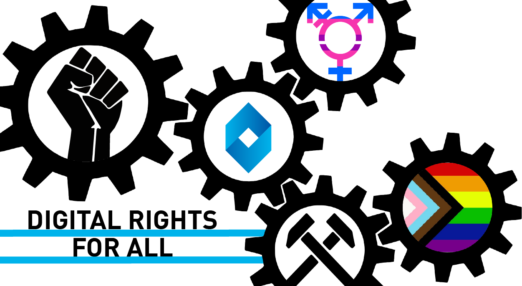
Digital rights for all
In this article we set out the background to EDRis’ work on anti-discrimination in the digital age. Here we take the first step to explore anti-discrimination as a digital rights issue, and then, what can EDRi do about it? The project is motivated by the need to recognise how oppression, discrimination and inequality impact the enjoyment of digital rights, and to live up to our commitment to uphold the digital rights of all.
Read more
